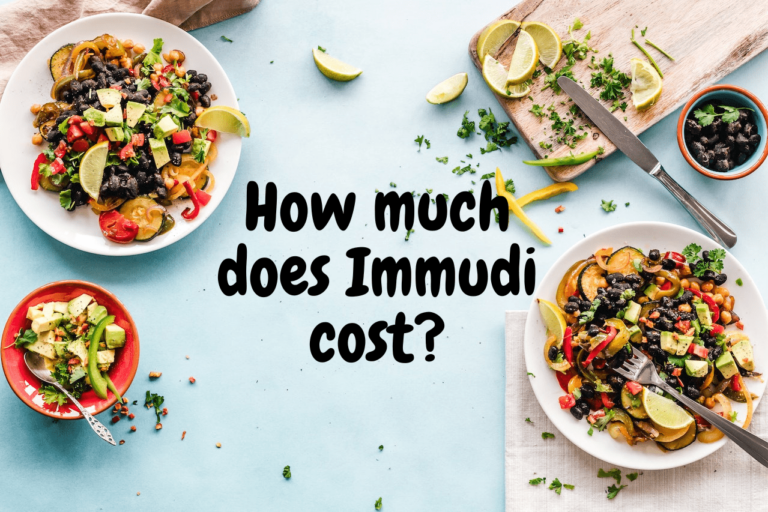Take a 1-minute Quiz To Get Your Anti-Inflammatory Weight-Loss Plan
Defeating Psoriasis with an Anti-Inflammatory Diet: James’ Path to Skin Recovery
- Published by Lisa C. Montana
- Health
- Last updated: March 23, 2023
- 1
- 63098
- 2 min
Hey there, I’m James, and I’m thrilled to share how I conquered my psoriasis with the help of an anti-inflammatory diet. My journey was challenging, but I believe that my experience can offer hope and guidance to others grappling with this persistent skin condition.
My Psoriasis Struggle
My battle with psoriasis began when I was just a teenager, and it was an ongoing ordeal that affected me deeply. The constant presence of itchy, scaly patches on my skin was not only uncomfortable but also took a toll on my self-esteem. I tried countless creams and treatments, but none seemed to provide lasting relief.

Hiding Behind Long Sleeves
To camouflage my psoriasis, I resorted to wearing long sleeves even in scorching summer weather. It was a temporary solution, but it didn’t address the underlying issue. I yearned for a way to truly combat psoriasis, not just cover it up.
My Experience with Steroid Creams
Desperate for relief, I consulted with a dermatologist who prescribed steroid creams. While they did offer some improvement, I wasn’t comfortable relying on them long-term due to potential side effects and concerns about skin thinning.
The Discovery of the Anti-Inflammatory Diet
That’s when I stumbled upon the concept of the anti-inflammatory diet. What piqued my interest was its emphasis on reducing inflammation in the body, a factor known to exacerbate psoriasis. I thought, “Why not give it a try?”
Say goodbye to psoriasis
Answer a quick quiz and start feeling healthy, looking great, and enjoying life in 28 days.
Understanding the Link Between Inflammation and Psoriasis
As I delved deeper into the anti-inflammatory diet, I began to understand how inflammation played a crucial role in the development of psoriasis. Psoriasis occurs when the immune system mistakenly attacks healthy skin cells, leading to a rapid buildup of skin cells and the formation of those characteristic patches. This immune system malfunction triggers inflammation in the skin.
Furthermore, inflammatory substances produced during this process can worsen the condition, making it more persistent and challenging to manage. By addressing the root cause of inflammation through approaches like the anti-inflammatory diet, it’s possible to break this cycle and achieve healthier skin.
Starting the Anti-Inflammatory Diet Journey
For me, adopting the anti-inflammatory diet was surprisingly straightforward. It involves incorporating foods that help combat inflammation. I began incorporating more fruits and vegetables into my meals because they are known to have skin-friendly properties. I also added foods like fatty fish and flaxseeds to my diet for their healthy fats, which are beneficial for skin health. Additionally, I introduced yogurt and kefir to promote gut health, as I discovered a connection between gut health and the severity of my psoriasis symptoms.

Witnessing Remarkable Progress
As I committed to the anti-inflammatory diet, I began to witness significant improvements in my psoriasis. The flare-ups became less frequent, and the scales started to fade. My skin felt more comfortable, and the incessant itching decreased significantly. It was a tremendous relief after years of battling this condition.
Regaining Confidence
Today, I can proudly say that I’ve taken control of my psoriasis. Thanks to the anti-inflammatory diet, I don’t need to hide behind long sleeves anymore. I’m comfortable in my own skin.
The Role of the Immudi App
Now, let’s talk about the Immudi app, which played a pivotal role in my journey. This app provides daily tips, helps you track your progress, and offers expert guidance to keep you on the right path. It’s like having a personal coach in your pocket, supporting you every step of the way.
Join Me on this Journey
Take a free quiz to find out if an anti-inflammatory diet can help manage your psoriasis symptoms.
Say goodbye to psoriasis
Answer a quick quiz and start feeling healthy, looking great, and enjoying life in 28 days.
Trending articles
World's #1 AI anti-inflammatory & autoimmune weight loss plan
Get a best-selling AI inflammation & meal tracker app. Say goodbye to binge eating, discomfort & yo-yo diets. Access detailed, easy-to-follow autoimmune meal plan and guidance from coaches.

The information Immudiplan.com provides is for educational and informational use only. The information is not intended to be used by the customer for any diagnostic purpose and is not a substitute for professional medical advice. You should always seek the advice of your physician or other healthcare providers with any questions you may have regarding diagnosis, cure, treatment, mitigation, or prevention of any disease or other medical condition or impairment or the status of your health.
*These statements have not been evaluated by the Food and Drug Administration. This product is not intended to diagnose, treat, cure, or prevent any disease.


